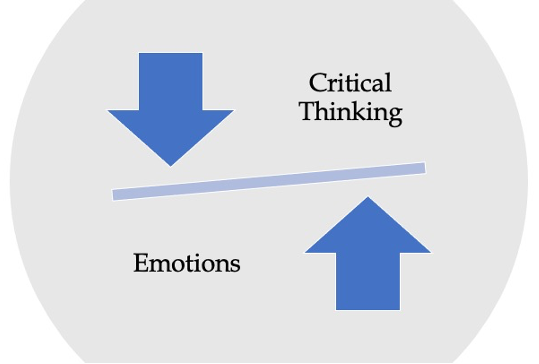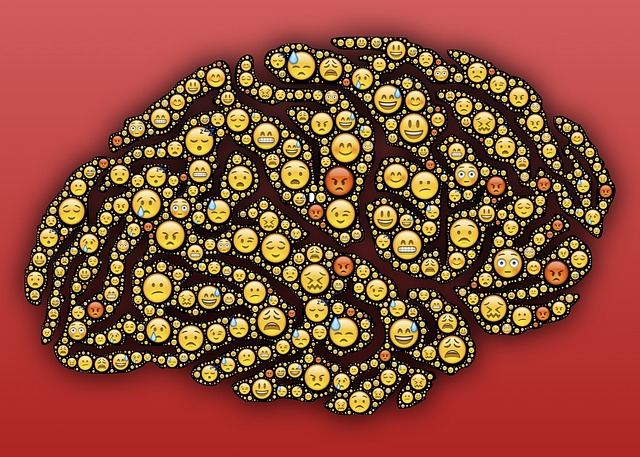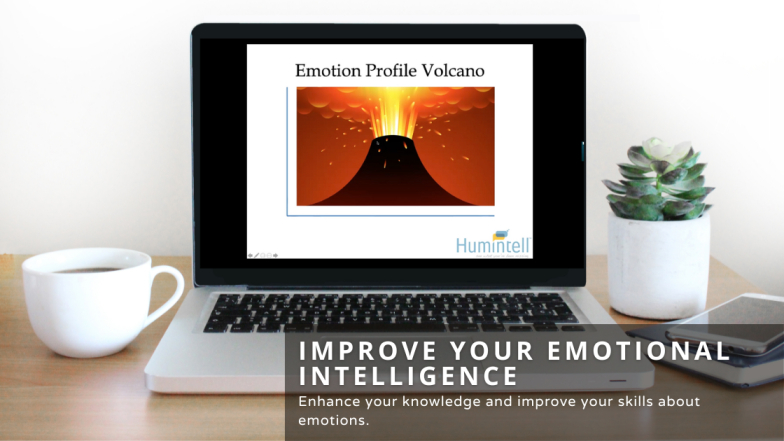
Everyone knows the importance of critical thinking. Ever notice that when emotions run high, thinking critically and strategically is almost impossible?
In a previous popular blog, we discussed how emotions and critical thinking are intricately linked with each other in high-level sports.
But sports is not the only context in which emotions affect our critical thinking abilities; many of us are in situations in which we need to be able to think critically and adapt strategically despite the fact that we are in intense emotional situations.
This is true not only for athletes in high-level competition as mentioned in the previous blog, but also for individuals in many walks of life – frontline healthcare workers facing life or death crises, individuals in harm’s way, people involved in extremely meaningful negotiations with others, or those who deal with difficult situations with loved ones. For all, being able to think critically and strategically despite being very emotional can be a very useful skill to have.
But doing so is extremely difficult, because emotions and critical thinking are on a see-saw; the more intensely we experience emotions, the more difficult it is to think critically and strategically.
Where does this come from?
 From an evolutionary perspective, this makes a lot of sense, especially because emotions and affective experiences existed much earlier in our phylogenetic history than did the complex critical thinking skills modern humans have.
From an evolutionary perspective, this makes a lot of sense, especially because emotions and affective experiences existed much earlier in our phylogenetic history than did the complex critical thinking skills modern humans have.
We needed those emotional reactions to help us navigate our complex social world and to adapt to threats in the environment in order to survive with minimal conscious deliberation.
Emotional reactions helped us deal with the tiger jumping out at us all of a sudden, when we found our valuable food or mates were absconded, or when we ingested spoiled foods or drinks. If we didn’t have emotional reactions that allowed us to adapt to those and many other situations, we wouldn’t be here today!
Or more precisely, those individuals who did not have those emotional reactions were selected out of the gene pool naturally, and those with the emotion system (that is, the rest of us today) were selected in to survive.
Even though many situations in our evolutionary history may not exist today, we still have that emotion system in us.
We don’t have emotions. They have us.
When emotions are elicited, essentially they take over our critical thinking abilities. In English we like to say we “have” emotions but in fact this is a misnomer. When we are emotional, they “have” us, and they take over many of our cognitive and behavioral systems. Recovering our ability to think critically takes some time.
Everyone is born into the world with natural propensities and individual differences in this timing characteristic; some people naturally recover quickly while others may take some time.
For some, it takes a LOOOOOONG time! Some people are like quick, intense flames that spark rapidly but go out equally quickly. Some people take a long time to simmer but once boiling point is reached, remain boiling for a long time. Thus, there’s definitely an inherited and genetic component to consider.
What the research says.
 Academia likes to pigeonhole very complex concepts like cognition and emotion into simple-to-understand dichotomies. While those dichotomies are useful for teaching and discussion, unfortunately they ignore the complex interconnections and high degrees of overlap among them.
Academia likes to pigeonhole very complex concepts like cognition and emotion into simple-to-understand dichotomies. While those dichotomies are useful for teaching and discussion, unfortunately they ignore the complex interconnections and high degrees of overlap among them.
Ample research from the last two decades has demonstrated that emotions and cognitions are not entirely distinct, separate, independent systems in our minds and brains, but in fact are highly interconnected with each other.
This is true not only psychologically but also neurophysiologically, as recent brain research has demonstrated. You might notice the addition of the words “and strategically” to thinking critically. This addition qualifies what should be referred to when thinking about critical thinking.
Critical thinking generally refers to something like “the ability to analyze information at multiple levels of complexity.” And to some extent, people can do so when they are intensely emotional.
When extremely angry, for instance, many people can think about one’s anger in many destructive ways, and similar associations in the past, present, and future, come fairly easily. To some degree, this is critical thinking. But that’s not necessarily the kind of critical thinking that is constructive for us at the moment.
What’s more important is strategically thinking about “how to deal with the context or situation one is in in order to achieve a goal, despite or in addition to the fact that one is very emotional.” This then leads us to understand important issues related to emotions and critical thinking a bit better: what we want is to be able to think critically and strategically even while experiencing intense emotions, that is, to be able to achieve constructive goals in intense situations.
Where to go from here?
Given the somewhat biologically hardwired nature of the association between emotion and cognition, and our extremely long evolutionary history with it, how can we “override” that system to be able to think critically and strategically in the moment in order to achieve constructive goals despite experiencing intense emotions?
Is it an inborn, unchangeable aptitude? Or is it a skill that can be trained and improved?
The answer is that it is both.
Regardless of whatever natural timing characteristics we come into the world with (which is related to our genetic composition), we can still train and improve this skill. This skill has been called a bunch of names in the past: emotional skills, emotional competence, emotional intelligence, emotion regulation, etc.
But whatever it is called, here’s the secret: IT’S NOT EASY! We are talking about overriding something that is largely inborn and inherited, is part of our evolutionary and phylogenetic history, and that we have had practice with for XX years (insert your age). Given that backdrop, anyone who says that training the emotional system is easy is nuts.
Practical Tips (to be continued…)
As many of you know, I have studied and conducted research on the emotion system for over three decades. In addition to my academic work, I have also had the very practical problem of how to train individuals to think critically and act strategically in intensely emotional situations.
For decades I have had the problem of needing to train athletes for high-level competition in a combat sport (judo) in which they needed to think critically, strategically and tactically on the fly in intense situations.
Because of my scientific background in emotion and affective science, I have studied, experienced and tried many, many different methods and systems to do so.
These have included critical incident analyses (there are many ways to do so), journaling (but it needs to be directed and focused analytically), mindfulness meditation (and there’s a ton of ways out there), yoga (all different types) and many others. And we have actually done many of these methods. They all work if done regularly and as intended.
Thus there’s more than one way to improve emotional skills (whatever you call it). But for me, the most important takeaway has been what I believe is the lowest common denominator of all approaches, that is, the one elemental component that is the basis of all approaches.
Knowing what it is has been especially helpful both academically and practically in my applied work.
In my next blog, I’ll discuss more about what that is and equally important, what to do about it. See you then!

Dear Dr. Matsumoto,
Reading you and your work is always such a good pleasure. Professionally I am devoted to the assessment and divulgation about emotion and non verbal communication. What I have experienced as a great shortcut to think strategically is recognizing the very emotion that I am experiencing. Identify what exactly elicited the emotion, why it happened this time, feeling the physiological answer, and knowing the likely answer if emotion “has me”… It helps anticipate my own behavior and take some distance. Only then I try to decide more strategically.
I understand that this is useful only in those situations where I can take at least a few minutes, but it really helps, and I feel I can help others, too, if I happen to be around.
Looking forward to reading your explanation in your next blog!